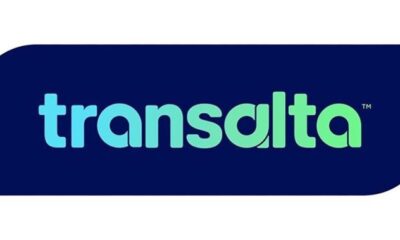Advice
3 Coaching Tools to Help Your Teen Finish the School Year Strong

Empowering your teen to finish the school year strong with coaching tools.
As the final semester approaches, students experience a range of emotions—anticipation, relief, and some anxiety about the future.
However, this period can serve as motivation for teens to finish strong. By utilizing life coaching techniques, teens can reflect on their successes and areas for improvement.
Here are 3 coaching tools that can help your teen navigate the end of the year:
-
Self-Awareness
Coaching provides students with the opportunity for self-discovery and self-awareness.
Self-awareness involves recognizing one’s thoughts, emotions, and behaviors in the present moment. It enables students to identify patterns such as stress triggers, procrastination tendencies, and reactions to challenges.
By nurturing self-awareness, teens can pinpoint challenges and brainstorm effective solutions.
-
Self-Discovery
Self-discovery delves deeper than self-awareness, focusing on uncovering passions, values, strengths, and motivations.
While self-awareness helps students recognize patterns, self-discovery prompts them to explore the reasons behind their behaviors. It is a journey of personal growth and realization.
This tool empowers teens to envision their potential and strategize ways to achieve it.
-
Peer-to-Peer Coaching
Peer-to-peer coaching fosters self-awareness and self-discovery.
This form of coaching involves friends using life-coaching skills to support each other. It leverages peer relationships to facilitate structured and guided conversations, enabling teens to provide constructive feedback and encouragement.
Through peer coaching, teens learn essential life skills and gain confidence, purpose, and direction. They engage in meaningful dialogues that enhance their self-awareness and self-discovery.
Utilizing Coaching Tools
Effective use of coaching tools begins with asking insightful questions.
Students can employ these questions in peer-to-peer coaching sessions or with parental guidance to embark on a journey of self-reflection.
As the school year concludes, encourage teens to ask each other:
- What are you proud of accomplishing this year?
- How did you overcome obstacles, and what did you learn?
- What areas can you focus on improving before the next school year?
- What steps can you take this week to progress towards your goals?
As the semester wraps up, teens have the choice to passively let it end or actively seek personal growth.
Emphasize to teens the importance of focusing on progress and potential rather than dwelling on struggles. Coaching is a journey of growth and development, not self-criticism.
Teach teens that growth is a collaborative effort involving peers, mentors, parents, and communities. Together, they can support each other and strive towards success.
For more information on life-coaching tools for your family, visit https://project-arrow.teachable.com.
-

 Destination9 months ago
Destination9 months agoSingapore Airlines CEO set to join board of Air India, BA News, BA
-

 Breaking News10 months ago
Breaking News10 months agoCroatia to reintroduce compulsory military draft as regional tensions soar
-

 Gadgets4 months ago
Gadgets4 months agoSupernatural Season 16 Revival News, Cast, Plot and Release Date
-

 Tech News1 year ago
Tech News1 year agoBangladeshi police agents accused of selling citizens’ personal information on Telegram
-

 Productivity12 months ago
Productivity12 months agoHow Your Contact Center Can Become A Customer Engagement Center
-

 Gadgets1 month ago
Gadgets1 month agoFallout Season 2 Potential Release Date, Cast, Plot and News
-

 Breaking News10 months ago
Breaking News10 months agoBangladesh crisis: Refaat Ahmed sworn in as Bangladesh’s new chief justice
-

 Toys12 months ago
Toys12 months ago15 of the Best Trike & Tricycles Mums Recommend























